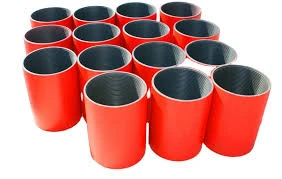- Afrikaans
- Albanian
- Amharic
- Arabic
- Armenian
- Azerbaijani
- Basque
- Belarusian
- Bengali
- Bosnian
- Bulgarian
- Catalan
- Cebuano
- Corsican
- Croatian
- Czech
- Danish
- Dutch
- English
- Esperanto
- Estonian
- Finnish
- French
- Frisian
- Galician
- Georgian
- German
- Greek
- Gujarati
- Haitian Creole
- hausa
- hawaiian
- Hebrew
- Hindi
- Miao
- Hungarian
- Icelandic
- igbo
- Indonesian
- irish
- Italian
- Japanese
- Javanese
- Kannada
- kazakh
- Khmer
- Rwandese
- Korean
- Kurdish
- Kyrgyz
- Lao
- Latin
- Latvian
- Lithuanian
- Luxembourgish
- Macedonian
- Malgashi
- Malay
- Malayalam
- Maltese
- Maori
- Marathi
- Mongolian
- Myanmar
- Nepali
- Norwegian
- Norwegian
- Occitan
- Pashto
- Persian
- Polish
- Portuguese
- Punjabi
- Romanian
- Russian
- Samoan
- Scottish Gaelic
- Serbian
- Sesotho
- Shona
- Sindhi
- Sinhala
- Slovak
- Slovenian
- Somali
- Spanish
- Sundanese
- Swahili
- Swedish
- Tagalog
- Tajik
- Tamil
- Tatar
- Telugu
- Thai
- Turkish
- Turkmen
- Ukrainian
- Urdu
- Uighur
- Uzbek
- Vietnamese
- Welsh
- Bantu
- Yiddish
- Yoruba
- Zulu
Understanding Well Casing Coupling Key Concepts and Applications in Drilling Operations
The Importance of Well Casing Couplings in Oil and Gas Drilling
In the oil and gas industry, drilling operations are highly complex and require a myriad of specialized equipment to ensure safety, efficiency, and reliability. Among these essential components is the well casing coupling, a critical element in the construction and integrity of oil and gas wells. This article will explore the significance of well casing couplings, their types, and their roles in drilling operations.
What is a Well Casing Coupling?
A well casing coupling is a specialized connector used to join two lengths of casing pipe together. Casing pipe is a tubular structure inserted into a drilled well to provide structural integrity, prevent collapse, and protect the well from contaminants. Couplings are crucial because they facilitate the assembly of long strings of casing, allowing for the efficient construction of wells.
Types of Well Casing Couplings
There are several types of well casing couplings, each designed for specific applications and conditions
. The most common types include1. Threaded Couplings These couplings feature external threads on one end and internal threads on the other, allowing them to be easily screwed onto casing pipes. The threaded design creates a robust and leak-resistant connection.
2. Butt Weld Couplings For applications where welding is preferred, butt weld couplings provide a seamless connection. The ends of the casing pipes are prepared and welded together, offering a smooth interior surface that reduces the risk of blockages.
3. Hammer Union Couplings These couplings are used in high-pressure environments. With a robust design that can withstand significant stress, hammer unions are typically employed in pressure-testing applications and fracturing operations.
well casing coupling

4. Flanged Couplings Flanged couplings are used when a bolted connection is required. This type allows for easy disassembly and reassembly, making maintenance and inspection straightforward.
Role in Drilling Operations
The primary role of well casing couplings is to ensure the structural integrity of a well. When drilling for oil or gas, the wellbore must be protected from collapse due to geological pressures and other environmental factors. Casing couplings provide a reliable connection between casing strings, maintaining the vertical stability of the well.
Furthermore, casing systems are designed to isolate different geological formations encountered during drilling. Well casing couplings play a vital role in achieving this isolation, which is crucial for preventing fluid migration between formations. This is particularly important in mitigating environmental risks, such as contamination of freshwater aquifers.
In addition to structural integrity and isolation, well casing couplings also facilitate efficient drilling operations. By allowing quick and straightforward connections between casing sections, they reduce the time required to complete drilling projects. This efficiency not only helps in maintaining project timelines but also plays a role in reducing costs associated with long drilling operations.
Materials and Standards
Well casing couplings are typically made from high-strength steel to withstand the extreme conditions found in drilling environments. The material chosen must be resistant to corrosion and able to endure high pressures and temperatures. Moreover, couplings must meet various industry standards to ensure they can perform effectively under the specific conditions of the well. Organizations such as the American Petroleum Institute (API) provide specifications that must be followed when manufacturing and using these components.
Conclusion
The significance of well casing couplings in the oil and gas drilling industry cannot be overstated. They provide the necessary connections to ensure the structural integrity of wells, facilitate isolation between geological formations, and enhance the efficiency of drilling operations. As drilling technologies advance and the challenges faced in the industry become more complex, the importance of high-quality, reliable well casing couplings will only continue to grow. Ensuring the right connections are made in every well not only safeguards the investment in drilling operations but also protects the environment and community surrounding these projects. By choosing the appropriate type of casing coupling and adhering to industry standards, operators can enhance the safety, efficiency, and overall success of their drilling endeavors.
-
Tubing Pup Joints: Essential Components for Oil and Gas OperationsNewsJul.10,2025
-
Pup Joints: Essential Components for Reliable Drilling OperationsNewsJul.10,2025
-
Pipe Couplings: Connecting Your World EfficientlyNewsJul.10,2025
-
Mastering Oilfield Operations with Quality Tubing and CasingNewsJul.10,2025
-
High-Quality Casing Couplings for Every NeedNewsJul.10,2025
-
Boost Your Drilling Efficiency with Premium Crossover Tools & Seating NipplesNewsJul.10,2025







